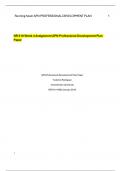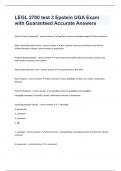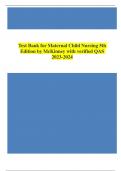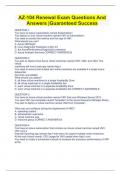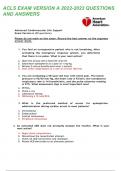Samenvatting
Summary Lectures - Clinical Psychology: Anxiety and Stress (FSWP2-062-A)
- Instelling
- Erasmus Universiteit Rotterdam (EUR)
This summary contains lecture notes based on the material covered in the lectures of Clinical Psychology: Anxiety & Stress.
[Meer zien]






